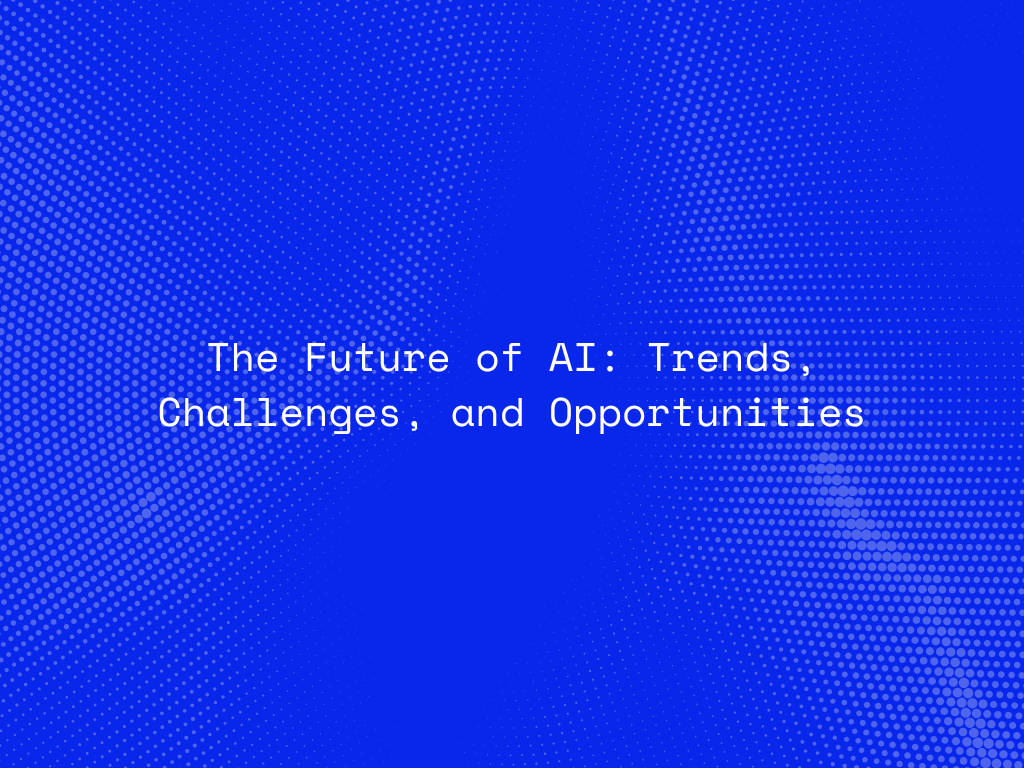As artificial intelligence continues to evolve, its impact across industries is undeniable. From automating tasks to transforming entire business models, AI has become an integral part of modern society. Looking ahead, the future of AI holds both exciting trends and significant challenges, offering new opportunities for businesses, researchers, and developers alike. This article explores where AI is headed, the obstacles it faces, and the potential it holds for shaping our world.
Key Trends Shaping the Future of AI
- Rise of Explainable AI (XAI): As AI becomes more widely adopted, the need for transparency in decision-making processes is growing. Explainable AI helps users understand how AI systems arrive at their conclusions, fostering trust and enabling organizations to deploy AI responsibly.
- Integration of AI with IoT: The combination of AI and IoT is unlocking smarter, more responsive devices. From smart homes to industrial automation, this trend is driving efficiency and enabling real-time decision-making at scale.
- Growth of Generative AI: Generative AI models, such as GPT and DALL-E, are transforming content creation by generating realistic text, images, and videos. This technology is revolutionizing fields like marketing, entertainment, and even design.
- Edge AI and TinyML: AI is moving from centralized cloud systems to edge devices, powered by technologies like TinyML. This shift enables real-time processing with minimal latency, reducing the need for data transfer and enhancing privacy.
Challenges in the AI Landscape
- Data Privacy and Security: With AI’s reliance on vast datasets, protecting user privacy and ensuring data security remain major concerns. AI systems are vulnerable to cybersecurity threats, which can lead to data breaches and misuse of sensitive information.
- Ethical and Bias Concerns: AI models can inadvertently perpetuate or amplify biases present in their training data, leading to unfair or discriminatory outcomes. Ensuring AI ethics in development and deployment is crucial for maintaining public trust.
- Resource and Energy Consumption: Training large AI models requires substantial computing power, resulting in high energy consumption and environmental impact. Balancing AI’s benefits with its resource demands is a key challenge for sustainable AI development.
- Talent Shortage and Skills Gap: As AI adoption grows, so does the demand for skilled professionals. The shortage of AI expertise is a barrier for companies looking to implement AI effectively, making upskilling and education essential.
Opportunities for Growth and Innovation in AI
- Healthcare Advancements: AI is accelerating breakthroughs in medical diagnostics, personalized treatments, and drug discovery. By analyzing vast amounts of healthcare data, AI can help predict disease outbreaks and improve patient care.
- Enhanced Customer Experiences: AI-powered chatbots, virtual assistants, and personalized recommendations are transforming customer service across industries. Businesses can deliver more tailored, responsive, and proactive customer experiences with AI.
- AI in Education: From personalized learning plans to intelligent tutoring systems, AI is creating more engaging and adaptive educational environments, catering to the unique needs of students.
- Sustainable Solutions: AI is driving sustainable development by optimizing energy use, reducing waste, and enhancing environmental monitoring. In agriculture, AI is helping improve crop yields and conserve water resources, promoting sustainable food production.
Preparing for the Future of AI
To fully harness the benefits of AI, businesses and governments need to adopt a proactive approach to AI governance and policy-making. Key considerations for the future include:
- Regulatory Compliance: Ensuring that AI systems comply with global and regional regulations is essential to avoid legal and ethical risks.
- Investing in Responsible AI: Prioritizing fairness, transparency, and accountability in AI models will enable organizations to build systems that people can trust.
- Continuous Learning and Adaptation: The fast-paced nature of AI requires ongoing learning and adaptation. Businesses must remain agile and open to new technologies to stay competitive.
Conclusion:
The future of artificial intelligence holds vast potential, with trends that promise to reshape industries and drive progress across sectors. However, realizing this potential comes with its share of challenges, from ethical concerns to technical limitations. By addressing these challenges head-on and investing in responsible AI practices, businesses can unlock the full potential of AI, creating a smarter, more sustainable future for all.




